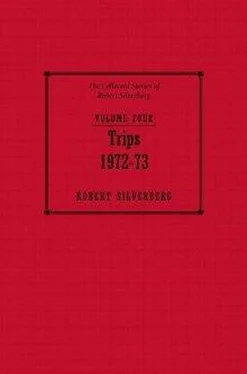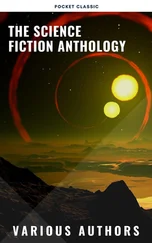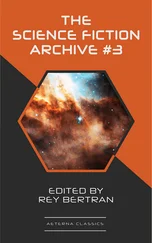Robert Silverberg - The Science Fiction Hall of Fame
Здесь есть возможность читать онлайн «Robert Silverberg - The Science Fiction Hall of Fame» весь текст электронной книги совершенно бесплатно (целиком полную версию без сокращений). В некоторых случаях можно слушать аудио, скачать через торрент в формате fb2 и присутствует краткое содержание. Год выпуска: 2009, ISBN: 2009, Издательство: Subterranean Press, Жанр: Фантастика и фэнтези, на английском языке. Описание произведения, (предисловие) а так же отзывы посетителей доступны на портале библиотеки ЛибКат.
- Название:The Science Fiction Hall of Fame
- Автор:
- Издательство:Subterranean Press
- Жанр:
- Год:2009
- ISBN:978-1-59606-212-2
- Рейтинг книги:4 / 5. Голосов: 1
-
Избранное:Добавить в избранное
- Отзывы:
-
Ваша оценка:
- 80
- 1
- 2
- 3
- 4
- 5
The Science Fiction Hall of Fame: краткое содержание, описание и аннотация
Предлагаем к чтению аннотацию, описание, краткое содержание или предисловие (зависит от того, что написал сам автор книги «The Science Fiction Hall of Fame»). Если вы не нашли необходимую информацию о книге — напишите в комментариях, мы постараемся отыскать её.
The Science Fiction Hall of Fame — читать онлайн бесплатно полную книгу (весь текст) целиком
Ниже представлен текст книги, разбитый по страницам. Система сохранения места последней прочитанной страницы, позволяет с удобством читать онлайн бесплатно книгу «The Science Fiction Hall of Fame», без необходимости каждый раз заново искать на чём Вы остановились. Поставьте закладку, и сможете в любой момент перейти на страницу, на которой закончили чтение.
Интервал:
Закладка:
Is this the center? Am I there? I doubt it. Will I know it when I reach it, or will I deny it as I frequently do, will I say, What else is there, where else should I look?
The alien was a repellent thing, all lines and angles, its tendrils quivering menacingly, its slit-wide eyes revealing a somber bloodshot curiosity. Mortenson was unable to focus clearly on the creature; it kept slipping off at the edges into some other plane of being, an odd rippling effect that he found morbidly disquieting. It was no more than fifty meters from him now, and advancing steadily. When it gets to within ten meters, he thought, I’m going to blast it no matter what.
Five steps more; then an eerie metamorphosis. In place of this thing of harsh angular threat there stood a beaming, happy Golkon! The plump little creature waved its chubby tentacles and cooed a gleeful greeting!
“I am love,” the Golkon declared. “I am the bringer of happiness! I welcome you to this world, dear friend!”
What do I fear? I fear the future. I fear the infinite possibilities that lie ahead. They fascinate and terrify me. I never thought I would admit that, even to myself. But what other interpretation can I place on my dream? That multitude of tunnels, that infinity of strange beings, all drifting toward me as I walk on and on? The embodiment of my basic fear. Hence my compulsive reading of science fiction: I crave road signs, I want a map of the territory that I must enter. That we all must enter. Yet the maps themselves are frightening. Perhaps I should look backward instead. It would be less terrifying to read historical novels. Yet I feed on these fantasies that obsess and frighten me. I derive energy from them. If I renounced them, what would nourish me?
The blood-collectors were out tonight, roving in thirsty packs across the blasted land. From the stone-walled safety of his cell he could hear them baying, could hear also the terrible cries of the victims, the old women, the straggling children. Four, five nights a week now, the fanged monsters broke loose and went marauding, and each night there were fewer humans left to hold back the tide. That was bad enough, but there was worse: his own craving. How much longer could he keep himself locked up in here? How long before he too was out there, prowling, questing for blood?
When I went to the newsstand at lunchtime to pick up the latest issue of Tomorrow, I found the first number of a new magazine: Worlds of Wonder. That startled me. It must be nine or ten years since anybody risked bringing out a new s-f title. We have our handful of long-established standbys, most of them founded in the thirties and even the twenties, which seem to be going to go on forever; but the failure of nearly all the younger magazines in the fifties was so emphatic that I suppose I came to assume there never again would be any new titles. Yet here is Worlds of Wonder, out today. There’s nothing extraordinary about it. Except for the name it might very well be Deep Space or Solar. The format is the usual one, the size of Reader’s Digest. The cover painting, unsurprisingly, is by Greenstone. The stories are by Aschenbach, Marcus, and some lesser names. The editor is Roy Schaefer, whom I remember as a competent but unspectacular writer in the fifties and sixties. I suppose I should be pleased that I’ll have six more issues a year to keep me amused. In fact I feel vaguely threatened, as though the tunnel of my dreams has sprouted an unexpected new fork.
The time machine hangs before me in the laboratory, a glittering golden ovoid suspended in ebony struts. Richards and Halleck smile nervously as I approach it. This, after all, is the climax of our years of research, and so much emotion rides on the success of the voyage I am about to take that every moment now seems freighted with heavy symbolic import. Our experiments with rats and rabbits seemed successful; but how can we know what it is to travel in time until a human being has made the journey?
All right. I enter the machine. Crisply we crackle instructions to one another across the intercom. Setting? Fifth of May, 2500 a.d.—a jump of nearly three and a half centuries. Power level? Energy feed? Go. Go. Dislocation circuit activated? Yes. All systems go. Bon voyage!
The control panel goes crazy. Dials spin. Lights flash. Everything’s zapping at once. I plunge forward in time, going, going, going!
When everything is calm again I commence the emergence routines. The time capsule must be opened just so, unhurriedly. My hands tremble in anticipation of the strange new world that awaits me. A thousand hypotheses tumble through my brain. At last the hatch opens. “Hello,” says Richards. “Hi there,” Halleck says. We are still in the laboratory.”
“I don’t understand,” I say. “My meters show definite temporal transfer.”
“There was,” says Richards. “You went forward to 2500 a.d., as planned. But you’re still here.”
“Where?”
“Here.”
Halleck laughs. “You know what happened, Mike? You did travel in time. You jumped forward three hundred and whatever years. But you brought the whole present along with you. You pulled our own time into the future. It’s like tugging a doughnut through its own hole. You see? Our work is kaput, Mike. We’ve got our answer. The present is always with us, no matter how far out we go.”
Once about five years ago I took some acid, a little purple pill that a friend of mine mailed me from New Mexico. I had read a good deal about the psychedelics and I wasn’t at all afraid; eager, in fact, hungry for the experience. I was going to float up into the cosmos and embrace it all. I was going to become a part of the nebulas and the supernovas, and they were going to become part of me; or rather, I would at last come to recognize that we had been part of each other all along. In other words, I imagined that LSD would be like an input of five hundred s-f novels all at once; a mind-blowing charge of imagery, emotion, strangeness, and transport to incredible unknowable places. The drug took about an hour to hit me. I saw the walls begin to flow and billow, and cascades of light streamed from the ceiling. Time became jumbled, and I thought three hours had gone by, but it was only about twenty minutes. Holly was with me. “What are you feeling?” she asked. “Is it mystical?” She asked a lot of questions like that. “I don’t know,” I said. “It’s very pretty, but I just don’t know.” The drug wore off in about seven hours, but my nervous system was keyed up and lights kept exploding behind my eyes when I tried to go to sleep. So I sat up all night and read Marcus’s Starflame novels, both of them, before dawn.
There is no galactic empire. There never will be any galactic empire. All is chaos. Everything is random. Galactic empires are puerile power-fantasies. Do I truly believe this? If not, why do I say it? Do I enjoy bringing myself down?
“Look over there!” the mutant whispered. Carter looked. An entire corner of the room had disappeared—melted away, as though it had been erased. Carter could see the street outside, the traffic, the building across the way. “Over there!” the mutant said. “Look!” The chair was gone. “Look!” The ceiling vanished. “Look! Look! Look!” Carter’s head whirled. Everything was going, vanishing at the command of the inexorable golden-eyed mutant. “Do you see the stars?” the mutant asked. He snapped his fingers. “No!” Carter cried. “Don’t!” Too late. The stars also were gone.
Sometimes I slip into what I consider the science fiction experience in everyday life. I mean, I can be sitting at my desk typing a report, or standing in the subway train waiting for the long grinding sweaty ride to end, when I feel a buzz, a rush, an upward movement of the soul similar to what I felt the time I took acid, and suddenly I see myself in an entirely new perspective—as a visitor from some other time, some other place, isolated in a world of alien beings known as Earth. Everything seems unfamiliar and baffling. I get that sense of doubleness, of déjà vu, as though I have read about this subway in some science fiction novel, as though I have seen this office described in a fantasy story, far away, long ago. The real world thus becomes something science fictional to me for twenty or thirty seconds at a stretch. The textures slide; the fabric strains. Sometimes, when that has happened to me, I think it’s more exciting than having a fantasy world become “real” as I read. And sometimes I think I’m coming apart.
Читать дальшеИнтервал:
Закладка:
Похожие книги на «The Science Fiction Hall of Fame»
Представляем Вашему вниманию похожие книги на «The Science Fiction Hall of Fame» списком для выбора. Мы отобрали схожую по названию и смыслу литературу в надежде предоставить читателям больше вариантов отыскать новые, интересные, ещё непрочитанные произведения.
Обсуждение, отзывы о книге «The Science Fiction Hall of Fame» и просто собственные мнения читателей. Оставьте ваши комментарии, напишите, что Вы думаете о произведении, его смысле или главных героях. Укажите что конкретно понравилось, а что нет, и почему Вы так считаете.












